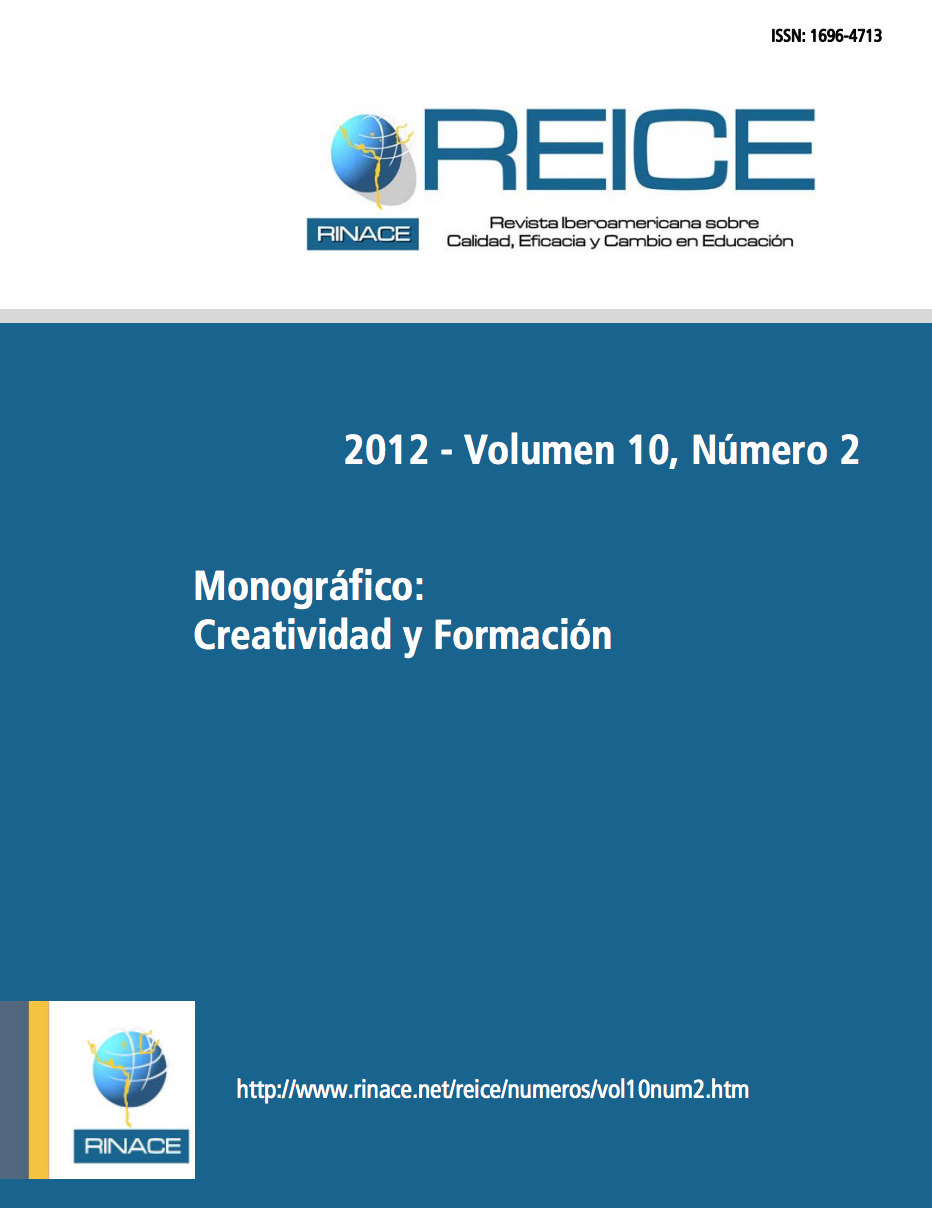Keywords:
Quality, Effectiveness, Change, Improvement, Equity, InnovationCopyright (c) 2016 REICE. Revista Iberoamericana sobre Calidad, Eficacia y Cambio en Educación

This work is licensed under a Creative Commons Attribution-NonCommercial-NoDerivatives 4.0 International License.
Abstract
The study of creativity as a basic element of human development from its inception has given keys to development competencies and skills in people to enable them to cope with autonomy ever changing environments by the dynamics social, economic and labor in which countries are immesed today. For different researchers and to those labor markets is related to creativity and innovation responses to problems arising from the news demands of consumers. entrepreneurship education is presented an opportunity for entrepreneurs to work and develop their creativity. This type of education and institutional support policies through Entrepreneurship and self-employment can strengthen the production and business Spanish through a network of people innovative to meet the challenge that is generating the economic crisis currently affecting the countries. Creativity applied through entrepreneurship education can lead to improvements in the professional transition process by workers from the end or drop out to school until entering in the labor market.
Downloads
References
Binks, M. y Vale, P. (1990). Entrepreneurship and economic change. Londres: McGraw-Hill.
Cantillon, R. (1755). Ensayo sobre la naturaleza del comercio en general. México: Fondo de Cultura Económica.
Casal, J. (1997). Modalidades de transición profesional, mercado de trabajo y condiciones de empleo, Cuadernos de Relaciones laborales, 11. Madrid: UCM.
Eindhoven, J. & VinackE, W. (1952). Creative processes in painting. Journal of General Psychology 47, pp. 139-164.
Erkkilä, K. (2000). Entrepreneurial Education. Mapping the debates in the United States, the United Kingdom and Finland. New York: Garland Publishing.
Figuera, P. (1996). La inserción del universitario en el mercado de trabajo. Barcelona: EUB.
Gibb, A.A. (1993). The Enterprise Culture and Education: Understanding Enterprise Education and its Links with Small Business, Entrepreneurship and Wider Educational Goals. International Small Business Journal,11(3), 11-34.
Guilford, J.P. (1967). Creativity: yesterday today and tomorrow. Journal of Creative Behavior, 1, 3-14
Landau, E. (1987). El vivir creativo: teoría y práctica de la creatividad. Barcelona: Editorial Herder.
Leibenstein, H. (1968). Entrepreneurship and development. American Economic Review, 58, 72-83.
Liñán, F. (2004). Educación empresarial y modelo de intenciones. Formación para un empresariado de calidad. Sevilla: Universidad de Sevilla.
Mochón, F. (2005). Economía. Teoría y Política. Madrid: McGraw Hill.
Patrick, C. (1935). Pensamiento creador. En Guthrie, E. y otros (1967). Las funciones psicológicas, pp. 126-136. Buenos Aires: Editorial Paidos.
Santos, F.J. (2001). La calidad del empresario sevillano. Sevilla: Siglo XXI.
Schumpeter, J.A. (1967). Teoría del desenvolvimiento económico, México: Fondo de Cultura Económica.
Vigotsky, L. (1981). The genesis of higher mental funtions. En Wertsch, J. V. (1981). The concept of activity in Soviet Psychology. New York: Sharpe.
Wallas, G. (1926). The Art of Thought. New York: Harcourt Brace
